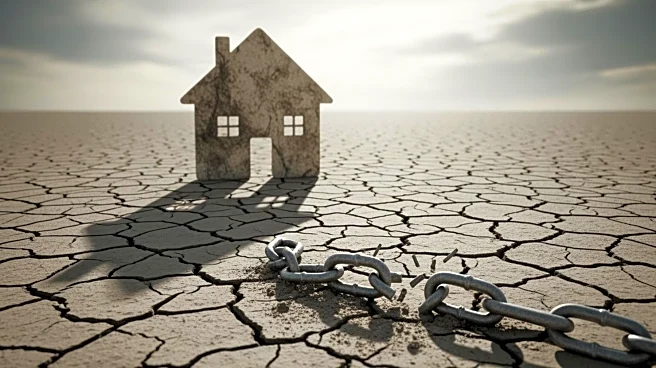What's Happening?
Foreclosure filings in the U.S. increased by 20% in October, according to data from ATTOM, as more homeowners struggle with mortgage payments amid rising living costs and job losses. The report indicates
that 36,766 foreclosure filings occurred in October, marking the eighth consecutive month of year-over-year increases. States like Florida, South Carolina, and Illinois reported the highest foreclosure rates. The trend is reminiscent of the 2008 housing crash, although current homeowners generally have safer loans. Experts warn that high borrowing costs and insurance premiums could lead to more defaults, potentially signaling deeper economic trouble.
Why It's Important?
The rise in foreclosures is a concerning indicator for the U.S. housing market and economy. It suggests that many families are facing financial instability, which could lead to broader economic repercussions. The situation is particularly dire in states like Florida, where residents are dealing with increased insurance costs and homeowners association fees. The potential for a housing market crash similar to 2008 could have significant implications for banks, investors, and the overall economy, affecting household wealth and financial stability.
What's Next?
If foreclosure rates continue to rise, it may prompt government intervention or policy changes to support struggling homeowners. The housing market could experience increased volatility, impacting home prices and buyer demand. Financial institutions may need to reassess their lending practices and risk management strategies. The situation could also lead to increased scrutiny of housing policies and the effectiveness of relief programs.
Beyond the Headlines
The foreclosure trend highlights the economic challenges faced by many Americans, particularly those on fixed incomes or in vulnerable financial positions. It raises questions about the sustainability of current housing market practices and the need for more robust consumer protections. The situation may also prompt discussions on the role of financial institutions in supporting economic stability and preventing widespread defaults.









